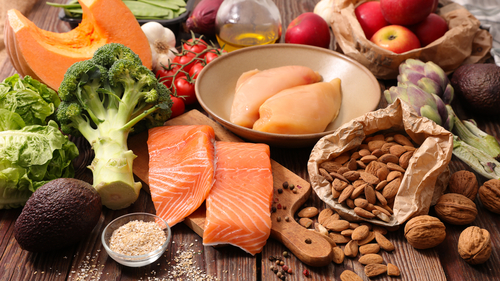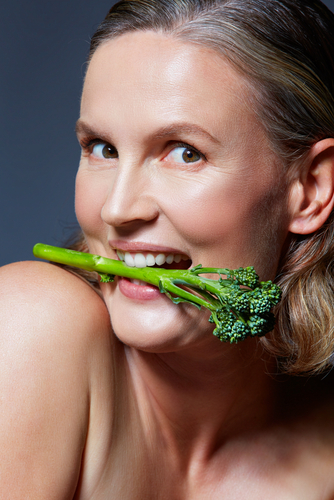The appearance of skin aging can come from the passage of time, but external factors such as ultraviolet light, smoking, pollution, bad sleep, and diet habits also play a role in such damage to the skin. Fortunately, many nutritional components play a significant role in preventing and even reversing the effects of chronological aging and external damage to the skin.
It is common knowledge that a healthy diet is one of the essential foundations of a healthy life, although that common knowledge is not always followed in practice. Similarly, research shows that the intake of oral and topical vitamins plus a diet that is rich in antioxidants also greatly improves your skin.
Skin repair requires vitamins A, B, C, D & E along with minerals such as zinc, especially when skin damage is caused by free radicals from sun and environmental factors. Many of these vitamins are considered antioxidants, which means that they neutralize the free radicals that damage and stress the skin.
These components of your food are nature's way of protecting and repairing your skin from damage. The vast majority of foods rich in antioxidants happen to be plants.
The plants with the highest amounts of these vital chemicals are fruits and vegetables that are richly colored. The more intense the color, the better.
 A landmark 2001 study in the Journal of the American College of Nutrition looked at diet and skin health in more than 400 people around the world, including all skin types. The researchers found that for all individuals, no matter what their skin type, those that ate foods with high levels of vitamins A, C, & E, and limited red meat and high carbohydrate foods, were much less prone to wrinkling.
A landmark 2001 study in the Journal of the American College of Nutrition looked at diet and skin health in more than 400 people around the world, including all skin types. The researchers found that for all individuals, no matter what their skin type, those that ate foods with high levels of vitamins A, C, & E, and limited red meat and high carbohydrate foods, were much less prone to wrinkling.These same researchers also found that diets with monounsaturated fats such as olive oil also appeared to offer skin protection. The fact that fatty acids are naturally part of your skin may explain this finding.
Based on the best scientific nutritional studies, the best foods for anti-aging are the following:
- green leafy vegetables (e.g. spinach, kale)
- avocados
- beans
- olive oil
- nuts
- wheat germ
- seeds
- sweet potatoes
- carrots
- bell peppers
- broccoli
- citrus fruits
While many people would prefer to "just take a pill" such as a multivitamin, the healthiest option is to choose a more plant-based diet rich in vitamins and antioxidants to best combat the effects of aging and the environment on the skin.
 Rather than memorizing all the foods listed above, the best approach to a healthy skin diet is to try to eat a rainbow of fruits and veggies every day, as different colors in foods usually represent different unique antioxidants. If you eat 5-7 servings of a colorful plant-based diet per day, you will prevent future skin aging, reverse prior skin damage, and generally have healthier, younger-looking skin.
Rather than memorizing all the foods listed above, the best approach to a healthy skin diet is to try to eat a rainbow of fruits and veggies every day, as different colors in foods usually represent different unique antioxidants. If you eat 5-7 servings of a colorful plant-based diet per day, you will prevent future skin aging, reverse prior skin damage, and generally have healthier, younger-looking skin.The old saying of "you are what you eat" happens to be true. Eat a plant-based and less processed diet, and you will look and feel better.

